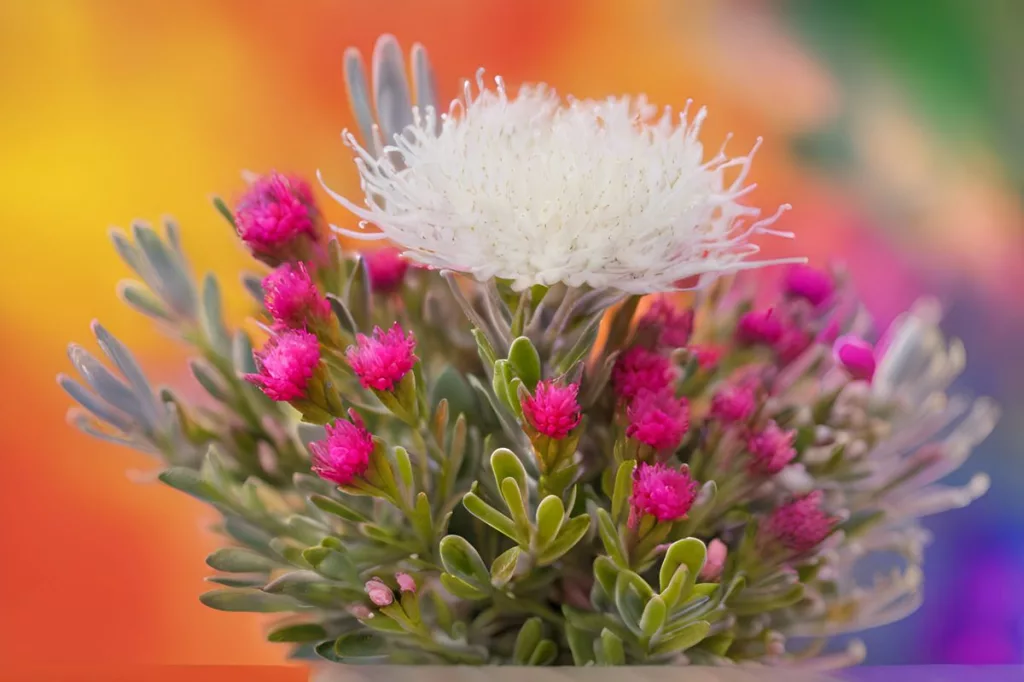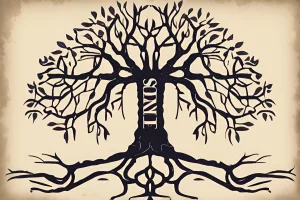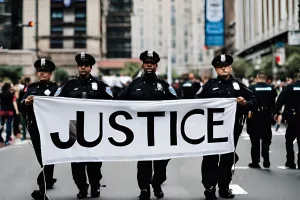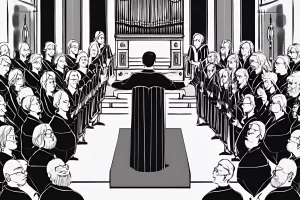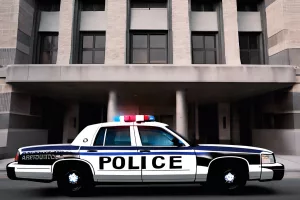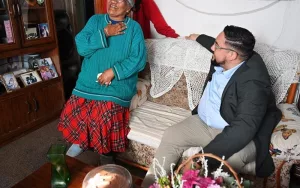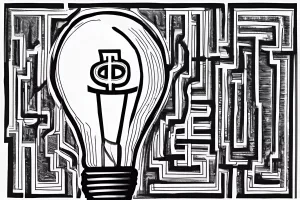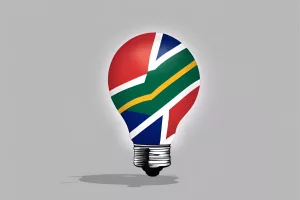South Africa’s Fynbos plant species won the gold medal at the 2024 Chelsea Flower Show, earning the country its 37th top award for fynbos displays since 1976. The fynbos species are a significant source of revenue through exports, generating around R85 million in revenue. The success at Chelsea and the thriving fynbos industry narrate a deeply inspiring story of South Africa where the beauty of nature intertwines with the lives of the communities that cultivate it, culminating in a harmonious blend of growth, diversity, and prosperity that transcends national boundaries.
The story of a crime lord, a detective, and a lawyer in South Africa’s criminal underworld is filled with deception, betrayal, and digital manipulation. Advanced digital tracking systems were used to stalk and attempt to assassinate targets, highlighting the need for strong cyber laws and digital forensic capabilities. The tale shines a spotlight on individuals who continue to pursue justice despite threats to their own lives and reminds us that the battle against organized crime is far from over.
The Zondo Commission was set up in South Africa to investigate corruption and state capture. The President presented the Commission’s report and implementation plan in October 2022, showing the country’s commitment to transparency and accountability. Parliament is actively working on implementing the recommendations, and the upcoming media briefing by Acting Speaker Mr. Tsenoli will highlight the progress made, including the challenges and successes, in carrying out the Commission’s recommendations as part of the country’s ongoing pursuit of a corruptionfree society and a dynamic democracy.
Criminals in South Africa are using innovative tactics to rob motorists, including placing ropes, spikes, and rocks across roads to trip motorcyclists and rob them, as well as placing objects like clothing and rocks on roads to imitate human figures and trick vehicles into stopping. Law enforcement has responded by warning motorists not to stop for road obstructions and to drive cautiously to the nearest petrol or police station. The situation demands creative strategies and a united commitment to ensuring public safety.
The South African National Service Institute (SANSI) has been established to address the significant concern of youth unemployment by providing young individuals with professional skills and qualifications, instilling a sense of discipline, patriotism, and toptier professionalism in them, and cultivating a culture of service, civic responsibility, leadership, and community engagement. The institute executes the National Youth Service (NYS), led by the South African National Defence Force (SANDF), and serves as a symbol of unity, service, and progress for the nation. SANSI’s vision is to nurture a nation of proficient individuals who are crucial contributors in transforming South Africa into the society it strives to be.
The tragic murder of fiveyearold Ditebogo Phalane in South Africa has prompted a thorough investigation by law enforcement agencies. Recently, the TOMS squad of the Hawks’ Pretoria division, working jointly with the Akasia Crime Prevention Unit and Tshwane District CI, made arrests in the case and discovered two illegal firearms, one suspected to be the murder weapon. One of the suspects was out on bail at the time of his arrest, highlighting the challenges faced by law enforcement in upholding peace and order. Despite the darkness of this tragedy, the tireless pursuit of justice by law enforcement serves as a beacon of hope in a crimeinfested society.
Worldrenowned Italian tenor, Andrea Bocelli, is bringing his exceptional classical talent to South Africa in April 2025 for his 30thanniversary tour. The concert promises to be a unique experience, featuring a soprano, choir, and orchestra set against the backdrop of the captivating Cape Town landscape. Bocelli’s concerts attract vast audiences worldwide and are renowned for their universal appeal, making his visit to South Africa a monumental moment of shared emotional experience. Fans can secure their seats from May 24, 2024.
Operation Shanela in South Africa’s North West Province was a successful law enforcement operation that resulted in the arrest of over a thousand suspects involved in various crimes, including contact crimes like murder and rape. The operation was led by the Provincial Police Commissioner and involved a multitude of strategies, including stop and searches, patrols, and vehicle checkpoints. The operation’s success showcases the dedication of law enforcement agencies in their relentless pursuit of justice and sends a strong message that crime in the North West Province will not go unpunished.
South Africa has been named one of the top 10 most beautiful countries in the world by Rough Guides, thanks to its unique diversity and mix of landscapes, cultural panorama, worldclass wines, affable locals, and delectable cuisine. The recognition is a reminder of the abundant beauty that exists in every corner of the world and should inspire us to explore, appreciate, and safeguard the breathtaking diversity of our planet. South Africa, with its dynamic complexity and stunning natural wonders, stands as a shining example of this universal appeal.
South Africa’s trucking industry faces a looming shutdown as the All Truck Drivers Forum and Allied SA (ATDFASA) announced a shutdown planned for May 20, 2024. This is due to the ongoing conflict over hiring foreign truck drivers, which has resulted in national shutdowns, protests, casualties, damage to trucks, and loss of goods. The impact of the protests has extended beyond the industry, severely affecting the South African economy and public safety. The disruptions have also caused shortages of basic necessities, delays in deliveries, and increased absences among staff members.
South Africa’s NHI Bill has been approved by the president and aims to offer universal quality healthcare to all citizens by consolidating resources from taxpayers. The bill promises to enroll all South Africans, including pensioners, in a unified funding system by 2024, ensuring extensive healthcare coverage. However, concerns have been raised about the potential pressure on government finances and the sustainability of SASSA grants. The execution of the bill is fraught with uncertainties, but if successful, it could bring a favorable transformation to the SASSA grants and alleviate financial strain on the country’s most vulnerable citizens.
Disney’s ‘The Magic Box’ is a breathtaking Broadway show that combines puppetry, costumes, projection techniques, and music to pay tribute to animation. The South African cast will debut the show on October 9th, immersing the audience in a sensory journey. The show features a captivating score with iconic melodies from Disney and a creative team that includes renowned composers and designers. Don’t miss the chance to embark on a magical journey through unforgettable narratives, songs, and characters with ‘The Magic Box.’
South Africa is focused on improving public housing conditions and recognizing its elderly tenants for their contributions. The city is committed to investing in safety measures and higher rental payments, with the revenue gained essential for better living environments. Residents are urged to fulfill their role by paying rent, which supports a wellmaintained public housing system and contributes to a safer and more dignified community.
The Kenneth Nkosana Makate vs Vodacom case is an intriguing legal battle in South Africa, centred on the ‘Please Call Me’ concept, which revolutionised mobile communication. Makate, the originator of the idea, claims he was not fairly compensated by Vodacom, his former employer. A recent ruling by South Africa’s Supreme Court of Appeal has directed Vodacom to pay Makate between R28.99 billion and R55.37 billion. If he receives the payout, it could have significant implications for Vodacom and transform Makate’s life, making him one of the wealthiest people in South Africa.
South Africa’s participatory democracy has entered a new chapter with the establishment of a new Parliamentary Constituency Office (PCO) in Botshabelo, Free State, under the stewardship of Mr. Lechesa Tsenoli. The refurbished PCOs provide a platform for Members of Parliament to communicate directly with the public, facilitating a deeper understanding of their concerns and aspirations. The goal is to promote public access and meaningful engagement in parliamentary proceedings, nurturing a more inclusive society. The Botshabelo PCO symbolizes a new era of lively community partnership and a vision for an inclusive democracy.
A Comprehensive Review of Legislative Changes Adopted by South Africa’s National Council of Provinces
South Africa’s National Council of Provinces approved six important legislative acts on May 16, 2024, including the Electricity Regulation Amendment Bill to overhaul the electrical industry and the General Intelligence Laws Amendment Bill to enhance national security measures. Other approved legislation includes the National Water Resources Infrastructure Agency Bill, the Marine Pollution (Prevention of Pollution from Ships) Amendment Bill, the Transport Appeal Tribunal Amendment Bill, and the Plant Health (Phytosanitary) Bill. These legislative changes aim to enhance the agricultural sector, protect the marine environment, restructure the transportation system, and improve the water supply.

